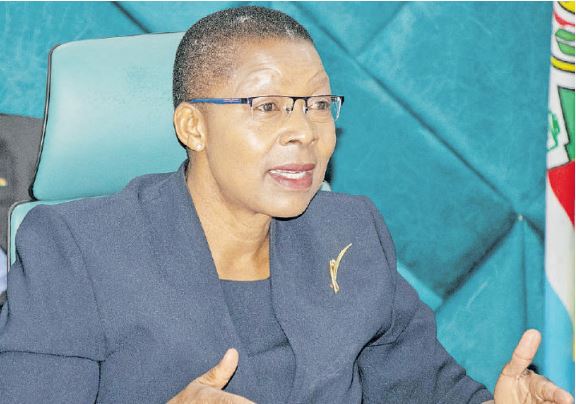
Attorney General Dorcas Oduor on Thursday unveiled the Anti-Corruption Laws (Amendment) Bill, 2025, which seeks to speed up justice in corruption cases.
“If the amendment goes through, then all corruption cases will have to be concluded within six months,” the AG said.
The proposed law mandates tight deadlines for concluding both trial and appellate proceedings.
Also unveiled by the AG were the Public Participation Bill, 2025, and the Whistle-Blower Protection Bill, 2025.
Both are geared towards enhancing citizen involvement in governance and reinforcing the legal framework around accountability and transparency.
Oduor said these new proposals are meant to create a legal environment that strengthens institutional integrity and restores public trust.
The Anti-Corruption Laws (Amendment) Bill, 2025, sets a new standard for expediting corruption-related cases.
Besides speeding up proceedings, the bill requires that High Court judges handling cases involving proceeds of corruption finalise hearings in six months.
“Notwithstanding anything contained in any other written law, a forfeiture application under this Act shall, as far as practicable, be heard and determined within six months from the date of the filing of the application,” the proposed legislation reads.
If an accused person is dissatisfied with a trial court’s decision, the appeal at the High Court must be resolved within three months.
A second appeal at the Court of Appeal is also to be determined within six months of filing, thereby compressing what are often years-long legal battles into a matter of months.
The bill also places restrictions on adjournments during trial. “Notwithstanding anything contained in the Criminal Procedure Code, as far as practicable, the trial of an offence under this Act shall be completed within six months from commencement of the trial,” it states.
“The court shall not grant an application for the adjournment of proceedings, except in compelling and exceptional circumstances.”
Oduor emphasised that the overarching goal of these laws is to improve public trust in state institutions and ensure that the fight against corruption is swift, effective and free of procedural loopholes.
Oduor stressed that tackling corruption swiftly is necessary for stabilising Kenya’s economy and improving governance.
“We have done much in the fight against corruption, but in 2025, we still face economic challenges tied to graft,” she said.
The Bill also grants the Ethics and Anti-Corruption Commission additional authority, including powers to investigate mobile money transfers, bank transactions and call data records without requiring court orders.
Moreover, it proposes administrative tools, such as asset freezing for up to 30 days, and penalties for non-cooperation, including up to Sh300,000 in fines or imprisonment.
“To enhance accountability, I call upon all institutions to align their activities with the Integrity Plan,” Oduor said.
“The success of this initiative depends on education, commitment and strong monitoring mechanisms.”
Meanwhile, LSK President Faith Odhiambo asked that there be a ceasefire between the police and protests organisers to stop the violence that has been witnessed in recent weeks during demonstrations.
While praising the crafting of the bills, Odhiambo said the carnage on the streets during the protests calls for a calming of tensions and restoration of dignity of life.
“It is important for everyone to step back and let sobriety prevail,” she said.
“The level of carnage we are seeing, the destruction of property and killings are unacceptable in a free and democratic society such as Kenya.”











